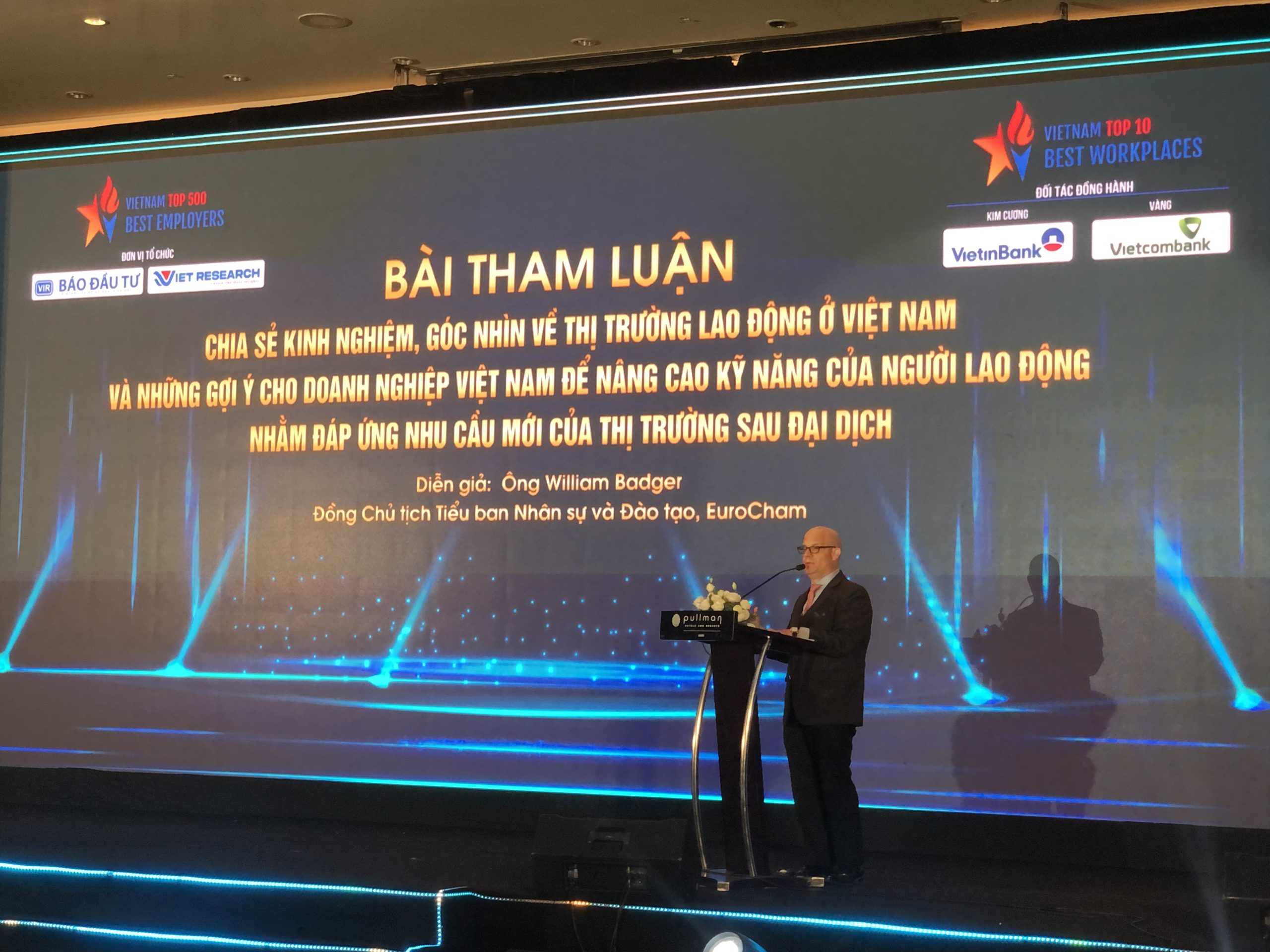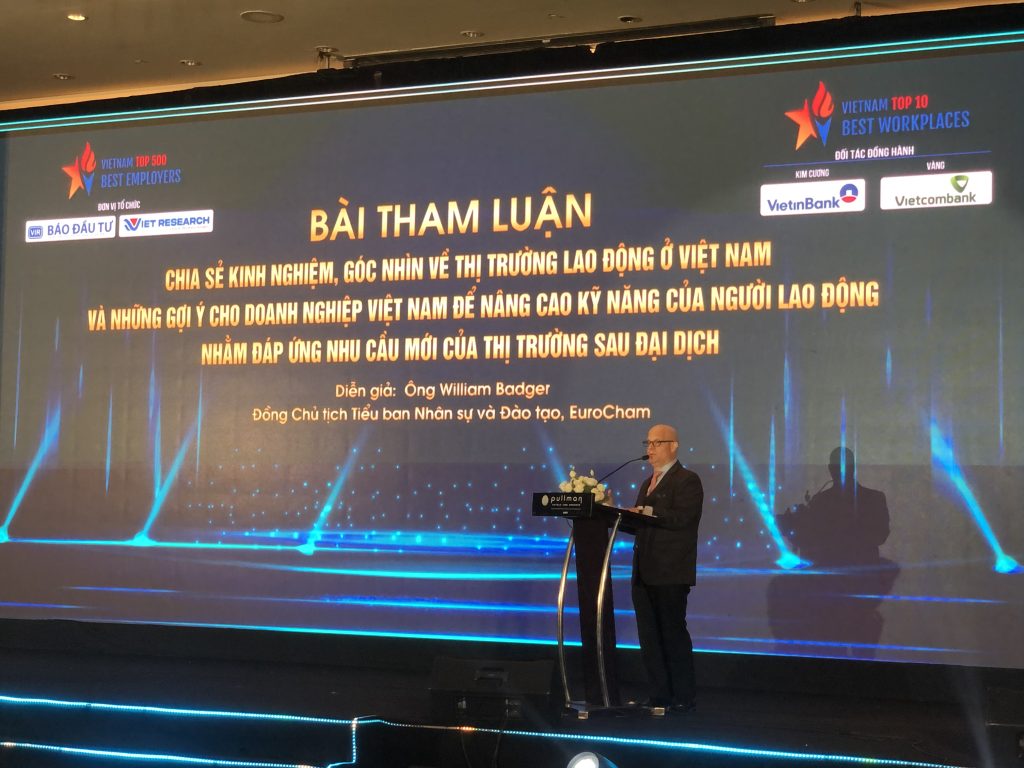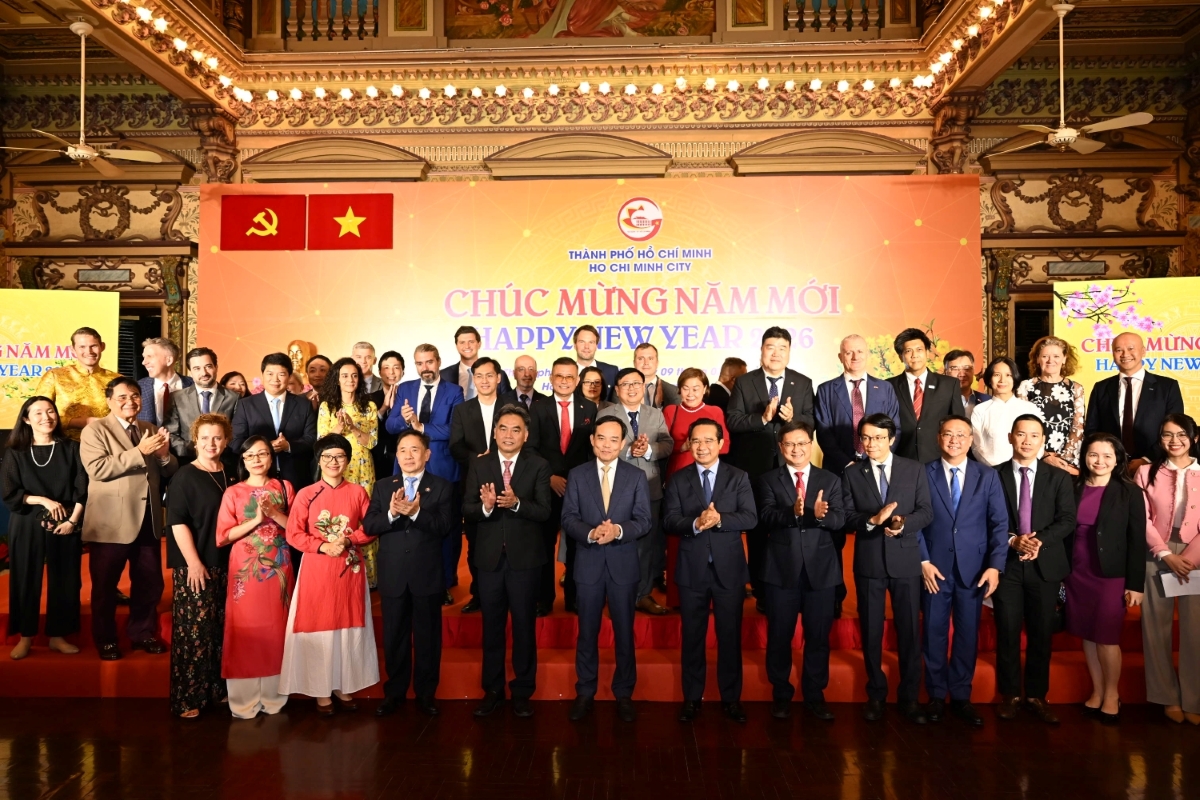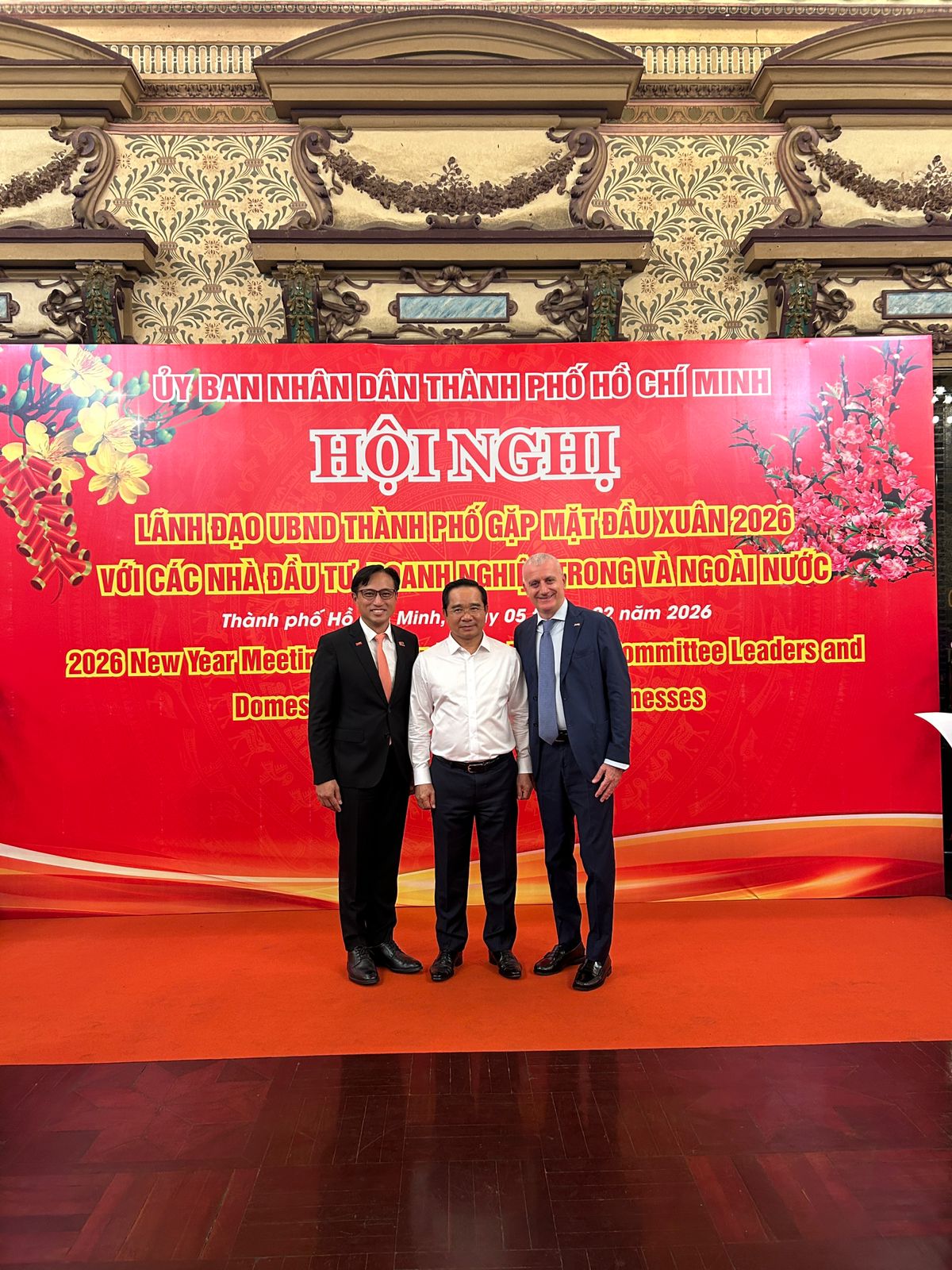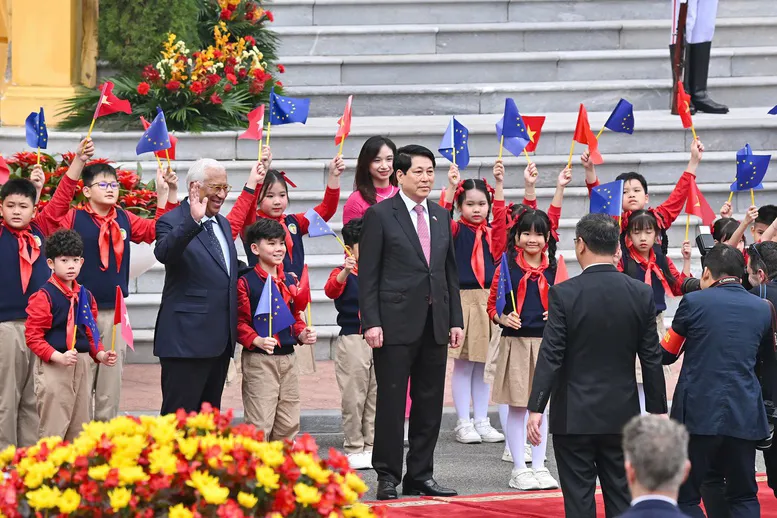The Pullman Hotel in Hanoi set the stage for the ‘Vietnam 500 Best Employers (VBE500) and 10 Best Workplaces (VBW10)’ announcement ceremony. Organized by Vietnam Investment Review in collaboration with Viet Research, this event was a convergence of business leaders and industry experts.
EuroCham Vietnam was represented by William Badger, Co-Chair of the Human Resources & Training Sector Committee (HR&T SC), and Nguyen Thi Thanh Huyen, Vice-Chair in charge of the HR&T SC’s HR policies.
In his remarks, Mr. Badger highlighted Vietnam’s extraordinary journey of growth and resilience in recent years. He reflected on the nation’s fight against COVID-19, the signing of the EU-Vietnam Free Trade Agreement (EVFTA), and the establishment of a Comprehensive Strategic Partnership with the United States. These milestones, he noted, have brought about significant opportunities and challenges for Vietnam’s economy, particularly in the labor market as the country continues to attract global investors.
Mr. Badger pointed out recent developments in the labor market, including the expansion and shift of major corporations in electronics and high-tech manufacturing to Vietnam. He also mentioned the new Resolution on top-up corporate income tax (CIT) effective from January 1, 2024, aimed at bolstering foreign direct investment and creating thousands of new jobs.
Highlighting the positive recovery in the labor market as per Q3/2023 statistics from the Ministry of Labor, Invalids, and Social Affairs (MOLISA), he noted the increasing demand for labor exceeding the number of job losses, marking a turnaround from the employment crisis that began in Q4/2022.
Mr. Badger emphasized the growing importance of digital transformation and technological innovation in the current job market, leading to a heightened demand for highly skilled employees, particularly those with bachelor’s degrees. The post-COVID-19 era has seen the adoption of new work models like remote working, deskless worker model, and hybrid model, necessitating a change in management and working styles for both employers and employees.
He also offered suggestions for enterprises to adapt to these market changes, including the development of training plans to equip employees with new technological skills, proactive collaboration with universities and training institutions, and the establishment of their own training centers, citing successful examples like the Vietnam – Singapore Vocational College and Dung Quat College of Technology.
The ceremony not only recognized the achievements of the top employers in Vietnam but also served as a platform for sharing insights and strategies to prepare for the evolving demands of the labor market.

